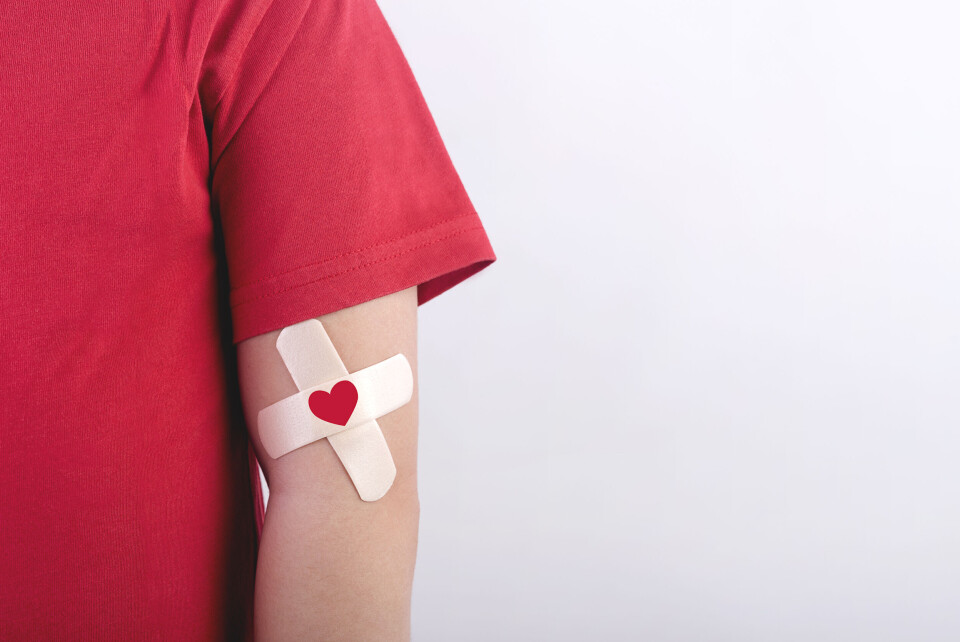-
Britons are the largest foreign community of second-home owners in Nouvelle Aquitaine
See which other departments in the region are popular with British nationals
-
Travellers risk extra costs under new Eurotunnel ticket rule
Some fare options are less flexible and less forgiving of lateness
-
May will be difficult month for train travel in France, warns minister
Two major train unions are threatening to strike and are ‘not willing to negotiate’, he says
French blood service encourages donations through MissingType campaign
The campaign asks people to consider life without the letters A, B and O - different blood types - to show how important they are

France’s blood donation operator has launched an awareness campaign called #MissingType that invites people to consider life without the letters A, B and O - names of blood types - in order to encourage people to donate.
The campaign, launched by the Etablissement Français du Sang (EFS), will run until January 15 with a host of companies, associations, charities and celebrities joining in and dropping the letters from their logos and communications.
[#CommuniquéDePresse 📰] #MissingType - Pour les vœux de nouvelle année, imaginons une vie sans A,B,O afin de sensibiliser au don de sang
— Établissement français du sang (@EFS_Sante) December 28, 2021
➡️https://t.co/V4ZQdGpmkJ pic.twitter.com/MF1ETcruDU
EFS states that it is inviting “citizens, brands, media and institutions to remove the letters A, B and O from their messages, logos, posts on social networks, etc., to show that these letters symbolising blood groups are quite simply indispensable, like blood donations”.
The organisation stressed that blood donation is particularly important considering the Covid pandemic has meant a lower number of donations have been made.
Around 10,000 blood donations are required each day to treat patients in France.
“In the current health context, #MissingType offers a simple, light-hearted and humorous way to get involved in a public health cause,” EFS states.
“[We] encourage all citizens to invent their own way of participating in this initiative to build a popular and strong momentum around blood donation.”
This is the second edition of the awareness campaign MissingType.
The previous edition mobilised over 500 ambassadors. Among them, brands, celebrities, influencers, health institutions, local authorities, public administrations and media outlets.
Jusqu'_u 15 j_nvier, l'Et_blissement fr_nç_is du s_ng (EFS) l_nce l_ 5e s_ison de l'opér_tion #MissingType. L'idée : f_ire disp_r_ître les lettres _, B, O, et sensibiliser _ l’import_nce du #DonDeS_ng#MissingType
— Institut national du cancer (@Institut_cancer) January 4, 2022
Pour donner votre s_ng 👉https://t.co/HYN5jtLO2B pic.twitter.com/KtMRlHydSf
Les Dragons soutiennent l'opération #MissingType lancée par @EFS_dondesang.
— Dragons Catalans (@DragonsOfficiel) January 3, 2022
Du 3 au 15 Janvier, le club masquera donc les lettres «A», «B», «O», de son logo 🩸
▶ https://t.co/DANydGyc4Y pic.twitter.com/TOO8vEdnx4
Who can donate blood in France?
You must be over 18 years old and under 70 to give blood in France, but there are a number of other criteria too related to weight, medical history, tattoos and piercing, and sex life.
The easiest way to know if you are eligible is to take this short survey on the EFS website (in French). As soon as you choose an option that makes you ineligible to give blood in France, an information box will pop up to tell you.
One factor that disqualifies someone from giving blood is those who spent over one year in total in the UK between January 1, 1980, and December 31, 1996. This is due to the outbreak of mad cow disease (Creutzfeldt-Jakob Disease) in the UK at the time.
EFS states that if you fall into this category, there are other ways to support the blood drive. For example, you can donate your blood for non-therapeutic use (for teaching and medical research). To do so, you should ask at a donation centre or find out more by phoning 0800 109 900.
Read more: Giving blood: When will France end ban over UK’s 1980s BSE outbreak?
Another factor, that is soon to be changed, is that a man who has had sex with another man in the past four months cannot donate blood.
This rule is set to change from the beginning of 2022 after an amendment was adopted in the French parliament in June this year. It will mean that a man who has had relations with one other man within the past four months will be able to donate blood, bringing it in line with the rules around heterosexual relations.
How do I donate?
If you wish to make an appointment in advance you can do so by booking online here.
You can also find your nearest donation centre by searching on the EFS website here.
What documents do I need?
If it is your first donation, you should bring an ID (national identity card, passport or residence permit). Otherwise, your donor card is sufficient. You do not need to bring your carnet de santé.
And in true French style, all donors will be offered a light meal after their donation. This usually consists of biscuits, bread and charcuterie, etc. There will also be drinks and water available too.
Related articles
Call for blood donors as France’s stocks reach critically low levels
























